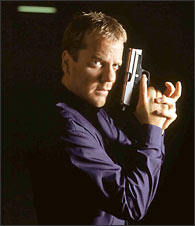From an Ottawa Sun Column:
Oddly, when we were on our fuzzier peacekeeping missions no one cared when we died. There was rarely any publicity, and little sympathy. I don't quite understand that. In the end, I guess some people just don't get it. Some friends and family don't understand why I want to go, and why I don't make an effort to get out of serving in Afghanistan. I don't hear anyone asking a cop why he answers 911 calls, or why a firefighter runs into a burning building. In fact, I was just accepted for an occupational transfer to Search and Rescue Technician that brings a significant pay raise, but I've turned it down to go to the new Special Operations Regiment.
Why? How can I back away when all my friends are going? I believe in the mission, and in my heart I'm a soldier. This is what I do.
This gentleman displays the mindset of the warrior. John Keegan wrote in his introduction to A History of Warfare:Warriors are not as other men. I really believe that most Canadians cannot fathom this mentality, and perhaps the idea that idealistic dupes like this poor fellow actually want to go put what they have spent years training for to good use is almost repellent to some -- so disconnected have we become from our own past. They believe that we are a nation of peacekeepers, and that our benevolent blue helmets are basically a Canadian peacecorps trained in negotiation and multilateral relations --Canadian Forces members should not talk like gung-ho "american style" warriors. And yet, there are still warriors among us; honourable warriors who believe that the military profession is not one where the primary role of its practicants must be obfuscated or cloaked in the jargon of the pacifist.
No, Canada is not a militaristic society, but it is nevertheless a society in which the military has always played a role, a society where warriors still dwell --something that the myths, pieties and social engineering of the last thirty years can never truly erase. If you don't believe me, walk into any old militia armoury in any city in Canada --there are dozens across the land --and ask to speak to the resident historian or curator of the military museum.
Warriors have been a part of Canadian society since the first outposts were founded by Champlain in the seventeenth century. The history of some of Canada's present-day militia units can be traced back to the Niagara and Lower Canada campaigns in the War of 1812. Throughout the imperial years of the nineteenth century, both before and after Confederation, Canadian men --often more British in outlook than Canadian, went around the globe to fight in Queen Victoria's Wars and many gained reknown. This is that particular breed I refer to as a warrior --a breed of man quite unlike the citizen-soldier, who enlists in time of war, as millions did during the twentieth century.
These warriors are now the ones who now eagerly volunteer for dangerous operations like the one in Afghanistan, where, in the "three block war", humanitarian relief, peacekeeping and warfighting all go hand-in-hand. They fight for those who cannot fight for themselves in the most wretched corners of the world, risking life and limb to ply their trade and bring help to the oppressed. Most strongly believe in what they are doing, and some are even eager to go. George Orwell was speaking of these men when he wrote: "People sleep peaceably in their beds at night only because rough men stand ready to do violence on their behalf". The warriors are part of a warrior tribe, quite apart from the rest of us, that hews to those old-fashioned values of duty, honour, and loyalty, and their function is to protect the rest of us.
We should not prevent them from doing what any society expects of its warriors.
Sunday, March 12, 2006
Subscribe to:
Post Comments (Atom)


No comments:
Post a Comment